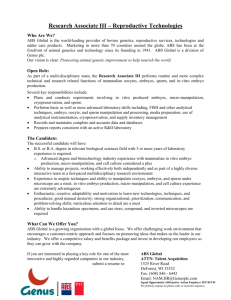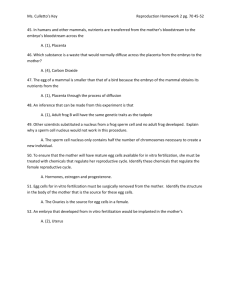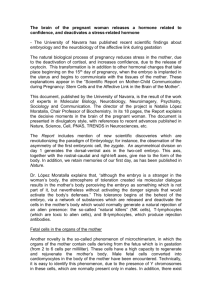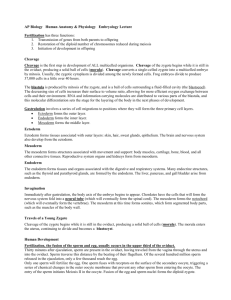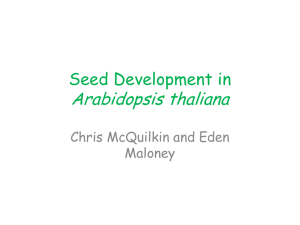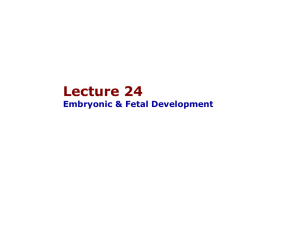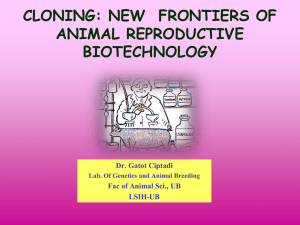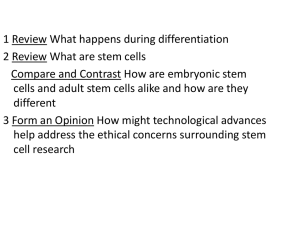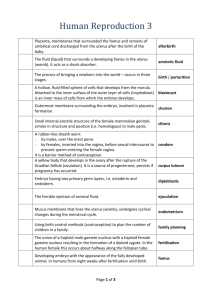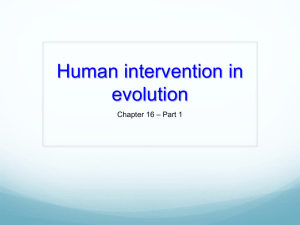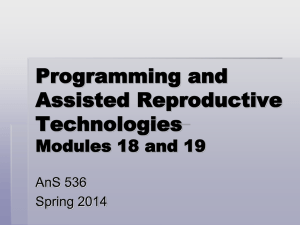Powerpoint_23_12
advertisement
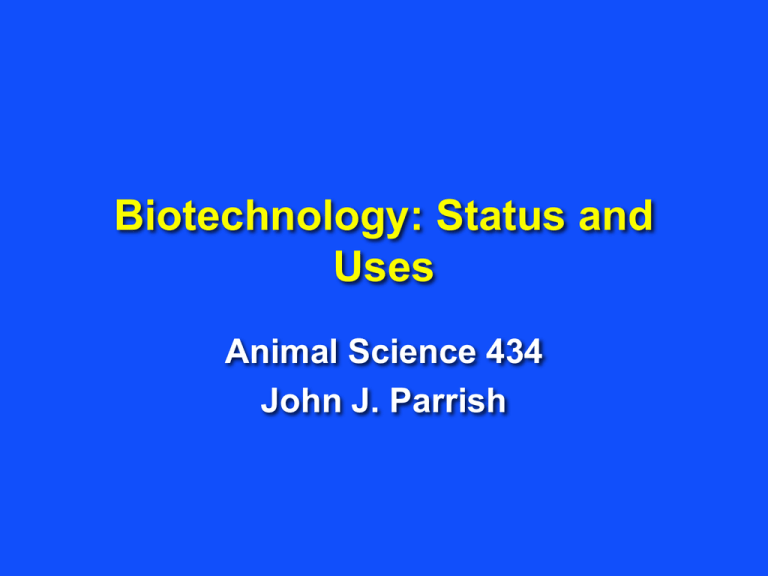
Biotechnology: Status and Uses Animal Science 434 John J. Parrish Reproductive Biotechnology's • • • • • • • • Artificial insemination In vitro embryo production In vivo embryo production Embryo transfer Gender selection Stem Cells Genetic engineering Cloning In Vitro Production of Embryos • • • • • Oocyte isolation and maturation Sperm preparation Sperm capacitation Fertilization Embryo Development In Vivo Embryo Production • Normal cycling female – horses • Superovulated female – Cattle – Sheep – Goats – Deer – Humans Stimulating Follicular Development PGF2a First Follicular Wave Estrus Estrus eCG or FSH 10-12 Multiple Ovulations Progesterone From C.L. NonSurgical Embryo Flush Day 6 or 7 Stage of Embryo at Recovery Tight Morula (day 5 - 7) Early Blastocyst (day 7 - 8) Blastocyst (day 7 - 9) ET Scheme Embryo Sexing • Hy Antigen – Associated with male cells • PCR and Detection of Y and X DNA Hy-Antigen Octopus Springs - Yellowstone National Park Home of Thermus aquaticus - Taq Polymerase PCR Approach to Embryo Sexing Y X FM F F F F F F Sperm Gender Selection Selection of X or Y sperm PERCENT DNA DIFFERENCES BETWEEN X and Y CHROMOSOME Human Cattle Chinchilla Turkey 2.9 3.8 7.5 0 X Chromosome has more DNA!!! Flow Cytometer Separation of X and Y Sperm 90° 0° LASER + Y sort + - X sort Sperm Stained With DNA Sensitive Fluorescent Dye Sperm Gender Selection • Flow Cytometry – Only method that works! – Very few sperm recovered – Reduced fertility – Expense will limit use Fetal Sexing OR Ultrasound Evaluation • Day 55 - 65 Cloning Split morula Cloning by Nuclear Transfer Cycles are limited Only 3 - 4 cycles Nuclear Cloning to Produce Stem Cells Cells of Interest Grown in Culture Dish Mature Oocyte enucleated and cell of interest fused Potential Tissue: Differentiate • Neural • Adipose • Connective • Heart Embyro?? Develops Inner Cell Mass Cells isolated and grown in culture Stem Cells Grown in Culture and Allowed to Differentiate http://www.ansci.wisc.edu/jjp1/as434/powerpoint/fa07/stem_cells.mov Benefits of Stem Cell Research 1. Regenerative medicine and tissue engineering In vitro systems: drug discovery, toxicology, diagnostic assays and cell culture reagents Biomedical research: unravel mechanisms of disease and human development Genetic Manipulation Transgenic for Growth Hormone Gene Transfer Using MicroInjection of Pronuclei Less than 1% efficiency Gene Transfer Using Viral Transfection Better success but left with potential for viral replication
